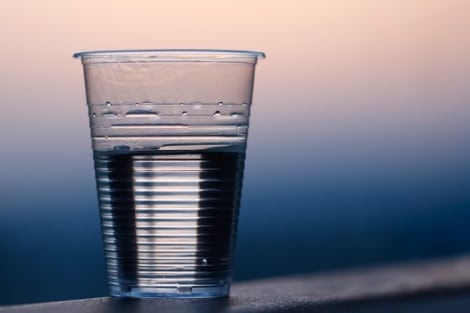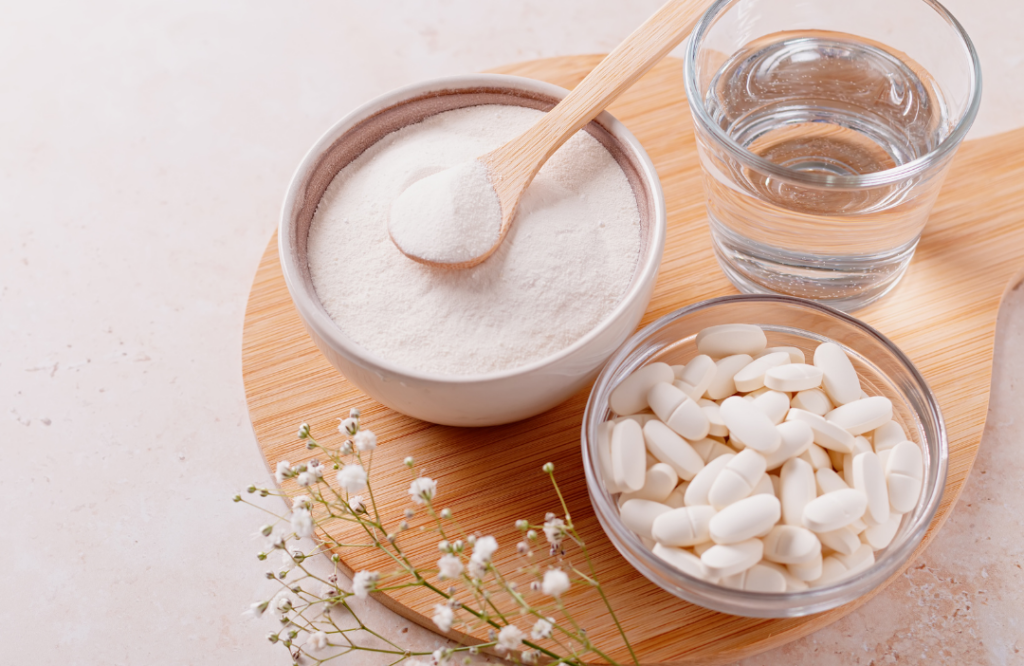7 Ways Plastics Are Harming Your Body
Published on June 21, 2017 by Dr. Caitlin Gordon
Poisoned by Plastics
 Plastics are everywhere, and it’s not just BPA that poses a threat to our health. Plastics are found in our shampoos, our food, our cookware, and our toothpaste. Like most chemicals in the U.S., they are poorly regulated, and studies showing their detrimental effects on human health have been largely ignored.
Plastics are everywhere, and it’s not just BPA that poses a threat to our health. Plastics are found in our shampoos, our food, our cookware, and our toothpaste. Like most chemicals in the U.S., they are poorly regulated, and studies showing their detrimental effects on human health have been largely ignored.
Instead, we see the rise of reproductive cancers, thyroid disorders, infertility, mood disorders, and inflammatory and irritable bowel disease. Increasingly, these conditions don’t respond well to standard or alternative treatments. Plastics are part of the puzzle.
Our bodies can only handle a certain level of chemical exposure before our filtration and detoxification systems become overburdened and imbalance and disease develop. The detrimental cumulative effect of years of exposure to chemicals, particularly those in plastics, needs to be taken seriously.
Here are 7 proven ways plastics are harming your body
(As excerpted from Functional Medicine University)
1: Phthalates damage the chemistry of fatty acids most importantly, the fatty acid, DHA (docosahexaenoic acid). This is the fundamental chemistry necessary for making every cell lining or membrane. These fatty acids are the foundation for brain health including memory and recall.
2: Phthalates can create a zinc deficiency which will compromise the metabolism of vitamins A and B-6. In turn, this could lead to conditions such as indigestion, depression, heart disease, cancer, diabetes, and accelerated aging.
As a quick side note the combination of low zinc and low DHA can lead to chronic inflammation. Medical literature has clearly identified chronic inflammation as one of the most common underlying pathologies of most diseases leading to auto-immune diseases (rheumatoid arthritis, MS) to cancer and heart disease.
3: Phthalates has been found to be responsible for damaging the pancreas leading to diabetes, insulin resistance and metabolic syndrome.
4: Phthalates has been found to lower sulfation. This means that you are no longer able to effectively detoxify like you should. This in turn, can lead to a whole host of health challenges.
5: Phthalates damage hormone function, especially thyroid and testosterone.
6: Phthalates can poison the peroxisomes needed for the control of the chemistry of cholesterol. They can cause high cholesterol while at the same time keep cholesterol from forming the “happy hormones” (neurotransmitters) of the brain.
7: Phthalates can damage the body’s ability to make catalase. Catalase is absolutely essential for devouring up the hydrogen peroxide that cancer cells make to allow them to metastasize or wildly spread throughout the body. Lack of catalase is a reason why many cancers briefly seem to be in remission after treatments, only to resurface months or years later with lethal consequences.
These are only 7 of the devastating effects of plastics in our bodies. Many diseases will never be cured until the phthalates are out.
Who Needs To Pay Attention
Everyone needs to reduce their use of plastics. However, those people who have the following symptoms or conditions are especially vulnerable, as these are signs of a system that is already overburdened.
- Thyroid disorders of any kind
- Hormone imbalance- PCOS, PMDD, PMS, menopause symptoms, ovarian cysts, endometriosis, irregular periods, amenorrhea, infertility, fibroids, fibrocystic breasts
- Everyone with a personal or family history of reproductive cancers
- Obesity, metabolic syndrome, and diabetes
- High cholesterol
- Digestive disorders: IBS, IBD, Crohn’s, colitis, etc.
What You Can Do
 The most effective way to reduce your risk of harm from plastics is to reduce your exposure. Studies show within weeks of reducing the use of plastics, blood levels of BPA and other chemical components are improved.
The most effective way to reduce your risk of harm from plastics is to reduce your exposure. Studies show within weeks of reducing the use of plastics, blood levels of BPA and other chemical components are improved.
In fact, I vividly remember about 7 years ago when NBC ran a segment on this. A mother was alerted to the issue of BPA specifically, and a blood test showed high levels for her and her children. She removed all the plastics toys, Tupperware, bottles, pacifiers, aluminum (plastic lined) cans, etc from the house and within several weeks her blood showed a marked reduction in BPA. It made an impact on me, but unfortunately, many people are still unaware of the gravity of this problem.
It can be overwhelming to replace every product you own at once and financially unrealistic for most. I suggest posting a list on your fridge and keeping a copy on your phone so that every time you run out of something, you replace it with a less toxic version.
Download the free Quit Plastic Cheat Sheet
A full guide for which products to reduce and what to replace them with to improve your health immediately.
Guess What? You’re Saving the Planet Too
Like all ecosystems, the health of one organism is intimately tied to the health of the entire ecosystem. What is toxic for us as humans is also toxic to the earth. By reducing your exposure to plastics you are not only reducing your own risk of cancers and other serious health problems, you are reducing your toxic impact on the environment. The world would be a much more beautiful place if we used less plastic
The contents of this site, including text, graphics, images, and other material are for informational purposes only. Nothing contained in this site is or should be considered or used as a substitute for professional medical or mental health advice, diagnosis, or treatment. Please schedule an appointment for personalized health advice.






